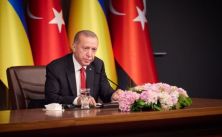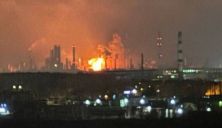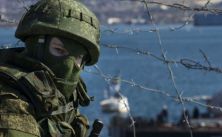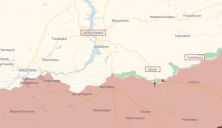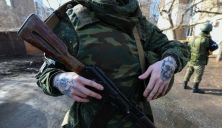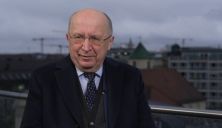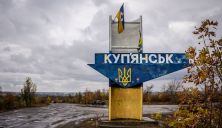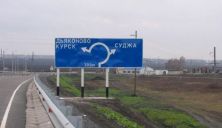Minister of Finance of Ukraine Sergii Marchenko delivered an online speech at the meeting of the G7 financial bloc. The event was attended by finance ministers and central bank governors of the G7 member states, as well as the management of the IMF, the World Bank, and the European Commission.
The main topics for discussion were priorities for further support of Ukraine by the international community, including the need to extend budget support until the end of this year and for 2024 and coordinated actions to channel frozen assets to rebuild Ukraine. The participants also discussed the current state of the economy and finances, the successful completion of the first review of Ukraine’s cooperation program with the IMF, and the importance of continuing reforms to EU accession.
The partners emphasized the effectiveness of the current financial policy of the Ministry of Finance of Ukraine and the success in mobilizing tax revenues, which contributed not only to stabilizing the macroeconomic situation in the face of extreme uncertainty but also to achieving better-than-forecasted results. The partners also assured of continued support, particularly for implementing structural reforms and the country’s reconstruction.
Sergii Marchenko emphasized the critical role of the support of international partners in ensuring the balance of the state budget of Ukraine and financing essential expenditures and thanked them for their assistance.
Key points from the speech of the Minister of Finance of Ukraine:
The current state of the economic and financial systems
Ukraine’s economy is showing resilience. The adjusted forecast envisages GDP growth of up to 3.2%. Inflation declined faster than expected for the fifth consecutive month to 12.8% in June from 26.6% in 2022.
In the first six months of 2023, customs revenues increased by 68% compared to the same period in 2022.
Since the beginning of this year, domestic borrowing in the domestic market has exceeded last year’s volume by more than 6% and reached USD 8.2 billion.
Since the beginning of the year, Ukraine has received USD 23.6 billion in international financial support.
Thus, today Ukraine has stable inflows of international financial support and a functioning domestic debt market. Thanks to these efforts, we have avoided monetary financing for the seventh month in a row.
In the context of uncertainty caused by the war, it is crucial to have assurances from our partners about future financial assistance. Recently, the European Commission announced a proposal to provide Ukraine with EUR 50 billion over the next four years, and Ukraine welcomes this initiative. We expect that the G7 countries will also take appropriate decisions to provide predictable and rhythmic budget support to Ukraine for the following year.
FATF
After Russia’s suspension from the FATF in February 2023, it stepped up its activities related to money laundering, terrorist financing, proliferation of weapons of mass destruction, and sanctions evasion. The FATF was aware of the increasing number of violations by Russia but decided not to blacklist the country at its recent plenary meetings. There is a risk that this decision could further encourage Russia to undermine global financial security.
Given that Russia meets the criteria for blacklisting, I urge everyone here to make efforts to reach a consensus among the broader FATF membership to blacklist Russia.
Recovery
The conference on Ukraine’s recovery in London was undoubtedly effective.
With international support, the private sector, and war risk insurance, we can fully attract the investment needed to rebuild Ukraine.
It is also vital to make progress in financing the reconstruction with frozen Russian funds as soon as possible. russia must pay for its crimes against our country.
None of the existing mechanisms of global intergovernmental international organizations ensures prompt consideration of reparations cases and effective enforcement of decisions. For these reasons, Ukraine is actively taking steps to establish a compensation commission unique to Ukraine.
The main goal is to pay real compensation to victims at the expense of the aggressor.
We see the compensation fund established under this mechanism as the only fund to which frozen Russian assets should be transferred. The Special Compensation Mechanism will operate based on an international treaty to be developed by Ukraine jointly with the countries that supported the UN General Assembly resolution.
Read also: Ukraine and European Union step up cooperation against cyber aggression
